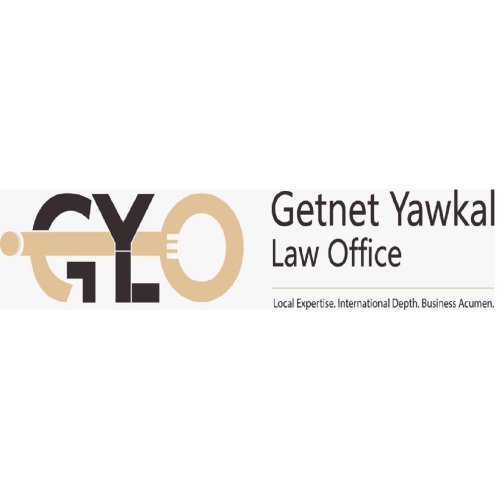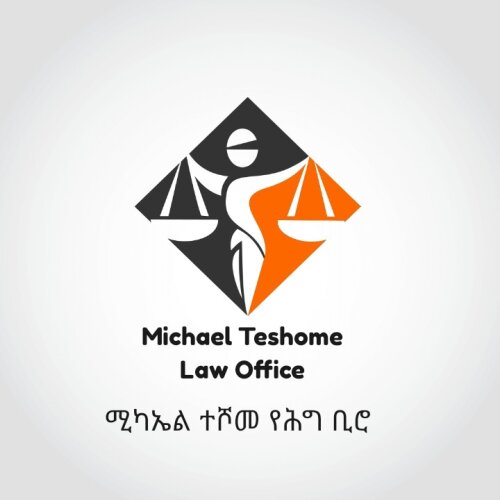Best Financial Services Regulation Lawyers in Ethiopia
Share your needs with us, get contacted by law firms.
Free. Takes 2 min.
Or refine your search by selecting a city:
List of the best lawyers in Ethiopia
About Financial Services Regulation Law in Ethiopia
Financial Services Regulation in Ethiopia involves a set of laws and guidelines that govern financial institutions, ensuring they operate with transparency, efficiency, and fairness. The primary authorities responsible for overseeing financial regulation include the National Bank of Ethiopia (NBE) and other government entities that provide oversight and enforce laws designed to protect consumers and ensure stability in the financial system. The legal framework aims to foster financial sector growth while maintaining confidence in the system by mitigating risks such as money laundering and fraud.
Why You May Need a Lawyer
There are several instances where you might require legal assistance regarding Financial Services Regulation in Ethiopia:
- Starting or expanding a financial institution, requiring compliance with regulatory requirements.
- Facing allegations of regulatory breaches or needing defense against enforcement actions by the NBE.
- Engaging in mergers or acquisitions where due diligence concerning financial regulations is necessary.
- Resolving disputes with financial institutions or seeking clarity on consumer rights and obligations.
- Understanding the implications of new or amended financial regulations on business operations.
Local Laws Overview
The key aspects of financial services regulation in Ethiopia include comprehensive oversight by the National Bank of Ethiopia, which establishes guidelines for licensing and operation of banking and non-banking financial institutions. The regulations cover areas such as capital adequacy, liquidity requirements, anti-money laundering measures, and consumer protection. Additionally, the Ethiopian government periodically updates these laws to align with international standards and address emerging financial challenges like fintech innovations.
Frequently Asked Questions
What is the role of the National Bank of Ethiopia in financial regulation?
The National Bank of Ethiopia is the regulatory authority responsible for ensuring the stability and integrity of the financial system. It licenses financial institutions, supervises their operations, and enforces regulations to protect consumer interests and maintain macroeconomic stability.
Do I need a license to operate a financial service business in Ethiopia?
Yes, any individual or entity wishing to operate a financial service business, including banks, microfinance institutions, and insurance companies, must obtain the necessary licenses from the National Bank of Ethiopia.
How does anti-money laundering regulation affect financial institutions?
Financial institutions in Ethiopia are required to implement measures to prevent money laundering and terrorist financing. This includes customer due diligence, suspicious transaction reporting, and maintaining accurate records as per the guidelines laid out by the NBE.
What are the consumer protection measures under Ethiopian financial law?
The financial regulations incorporate consumer protection measures such as transparency in contract terms, fair lending practices, and effective dispute resolution mechanisms to safeguard consumer interests.
How are digital financial services regulated?
The NBE regulates digital financial services through specific guidelines that address issues such as electronic payments, cybersecurity, and fintech innovations to ensure safety and security in digital transactions.
What penalties can be imposed for non-compliance with financial regulations?
Penalties for non-compliance can include fines, license suspension or revocation, and criminal charges depending on the severity of the regulatory breach.
Can foreign banks operate in Ethiopia?
Currently, Ethiopia has restrictions on foreign banks operating within its borders. However, reforms and dialogues about opening up the market have been ongoing.
How are mergers and acquisitions in the financial sector regulated?
Mergers and acquisitions require approval from the NBE, which considers factors such as market competition, concentration of power, and compliance with financial regulations.
How does Ethiopia ensure compliance with international banking standards?
Ethiopia aligns its financial regulations with international norms, adopting practices from global financial bodies such as the IMF and World Bank to ensure a sound financial system.
Who oversees dispute resolution between consumers and financial institutions?
Dispute resolution is primarily overseen by the National Bank of Ethiopia. They provide an avenue for lodging complaints and seek to mediate and resolve issues between consumers and institutions.
Additional Resources
If you require further information or assistance, consider reaching out to the following resources:
- National Bank of Ethiopia (NBE) for regulatory guidance and compliance information.
- Ethiopian Investment Commission (EIC) for advice on investment in the financial sector.
- Ministry of Finance for policy related information affecting financial services.
- Ethiopian Insurance Corporation for queries specifically related to the insurance sector.
- Industry associations such as the Ethiopian Bankers Association for networking and professional advice.
Next Steps
If you need legal assistance in Financial Services Regulation, follow these steps:
- Research and identify experienced lawyers or law firms specializing in financial regulation in Ethiopia.
- Schedule consultations to discuss your specific needs and understand the legal landscape better.
- Prepare and gather all relevant documents and information related to your case or inquiry.
- Define your objectives and convey them clearly to your attorney for tailored advice and possible representation.
- Stay informed and involved in the legal process for optimal outcomes.
Lawzana helps you find the best lawyers and law firms in Ethiopia through a curated and pre-screened list of qualified legal professionals. Our platform offers rankings and detailed profiles of attorneys and law firms, allowing you to compare based on practice areas, including Financial Services Regulation, experience, and client feedback.
Each profile includes a description of the firm's areas of practice, client reviews, team members and partners, year of establishment, spoken languages, office locations, contact information, social media presence, and any published articles or resources. Most firms on our platform speak English and are experienced in both local and international legal matters.
Get a quote from top-rated law firms in Ethiopia — quickly, securely, and without unnecessary hassle.
Disclaimer:
The information provided on this page is for general informational purposes only and does not constitute legal advice. While we strive to ensure the accuracy and relevance of the content, legal information may change over time, and interpretations of the law can vary. You should always consult with a qualified legal professional for advice specific to your situation.
We disclaim all liability for actions taken or not taken based on the content of this page. If you believe any information is incorrect or outdated, please contact us, and we will review and update it where appropriate.
Browse financial services regulation law firms by city in Ethiopia
Refine your search by selecting a city.

















